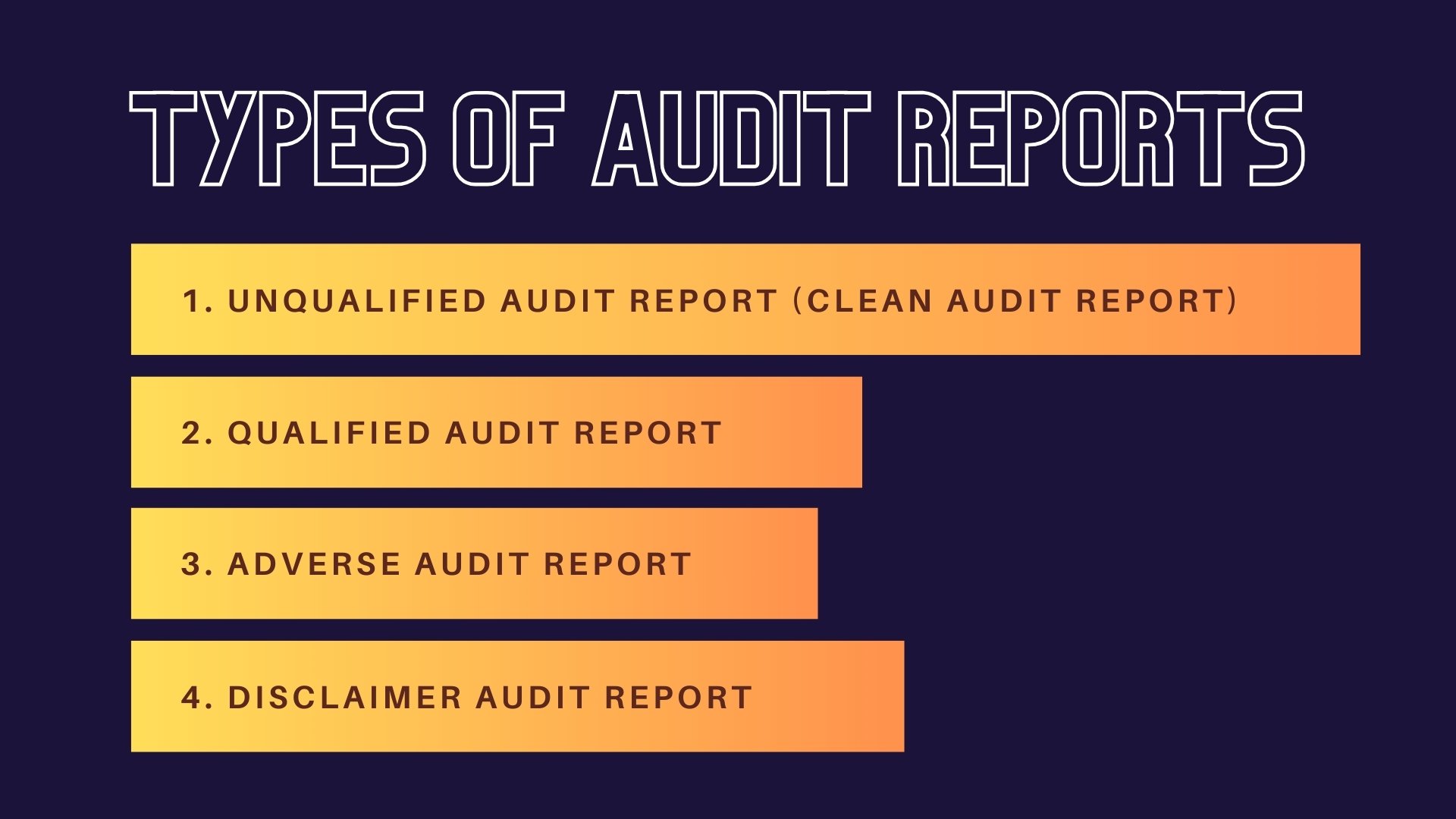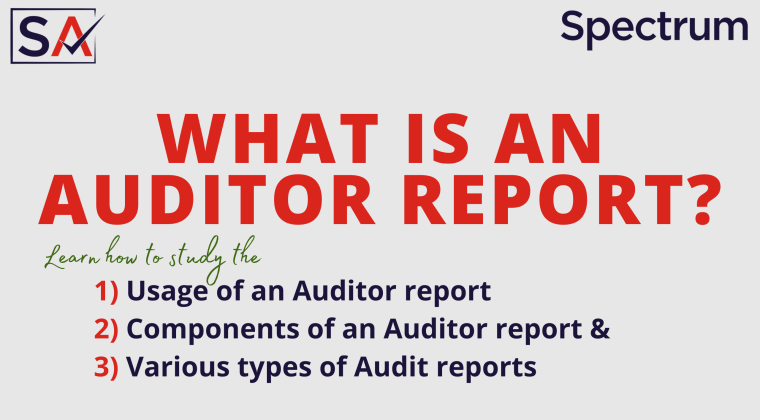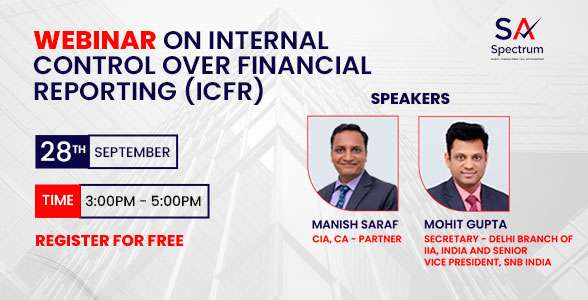In this blog, let’s find out What is an Auditor report, The usage of an Auditor report, The components of an Auditor report, and the various types of Audit reports?

What is an Audit Report?
The audit report is published as a part of any company’s annual report, and it is considered very important as it captures the final view of the entire audit process. The audit report contains the auditor’s opinion, which independent auditors issue after they examine the entity’s financial statements and related reports. The Auditors in Dubai review whether or not financial statements are prepared with true and fair view following the accounting standards. Those standards could be International Financial Reporting Standards (IFRS), International Accounting Standards (IAS) and Generally Accepted Accounting Principles (GAAP).

Usage of an Audit report:
The audit report is used by many stakeholders, including the entity’s management, directors, shareholders, investors, government bodies, banks, and many others.
In most cases, the audit report is issued to cover financial statements over 12 months or a for certain period in compliance with the UAE Commercial Companies Law (Federal Decree-Law no. (32) of 2021 ON COMMERCIAL COMPANIES).
- Investors use audit reports and audited financial statements to assess the entity’s financial performance and financial position for their investment opportunity.
- The government agency like, Federal Tax Authority (FTA), License issuing authorities, use audit reports and financial statements to assess the completeness and accuracy of the tax declaration.
- Shareholders and the board of directors use the audit report to assess the integrity of management and transparency of financial statements.
- Furthermore, certain free zones in Dubai necessitate the submission of audited financial statements as a prerequisite for renewing a company’s trade license.

Components of a Standard Audit Report
Understanding the various components of a standard audit report is crucial for entrepreneurs, given its compelling importance. An unqualified opinion, or report, doesn’t contain any adverse comment and doesn’t include any disclaimers about any clauses of the audit report (as explained in the types of Audit reports below). Here, we delve into the seven key elements of a standard audit report:
- Audit Report Title
The title of the audit report should include the intended recipient/addressee. The report’s addressee is often the Shareholder/s, group, entity, board of directors and/or stockholders who have availed of the audit services in Dubai. The inclusion of the term ‘Independent’ distinguishes it from internal audits, with titles such as “Independent Auditor’s Report” or “Report of Independent Auditor.”
- Opening or Introductory Paragraph
The introductory paragraph of an audit report is usually a statement that the financial statements described in the report have been audited. It identifies the financial documents used in the audit and emphasizes the management team’s responsibility, to ensure that the financial statements are correct and fair in accordance with the internationally accepted accounting standards (IFRS, IAS and GAAP).
- Scope Paragraph
The scope paragraph outlines the audit’s parameters, detailing the standards, rules, and methods adhered to by audit firms in Dubai. This is a paragraph that expresses that the rules and methods that were followed by an auditor in the audit were set by the Generally Accepted Audit Standards (i.e. International Standards on Auditing (ISAs)).
- Opinion Paragraph
This is where an auditor’s opinion is stated, whether they believe that a company’s financial statements are correct and fair and follow accounting standards or not. They also state the methods used in how they have arrived at such a conclusion. The opinion paragraph is pivotal, presenting the auditors’ impression after auditing the financial statements. It confirms the auditors’ independence and adherence to ethical responsibilities per the International Ethics Standard Board for Accountants (IESBA).
- Description of Auditor’s Responsibilities for Audit of Financial Statement
This section outlines the auditor’s objectives, including obtaining reasonable assurance about the absence and presence (if any) of material misstatements and issuing an opinion. The auditor exercises professional judgment, assesses risks, evaluates internal controls, reviews accounting policies, and ensures fair presentation.
- Report on Other Legal & Regulatory Requirements
This section reports on various aspects, such as information acquisition, compliance with laws, proper maintenance of accounts, consistency of financial information, and adherence to relevant provisions.
- Auditor’s Name & Signature
The concluding section identifies the auditor as the report’s author, including their name and the audit firm they represent. The auditor reinforces accountability by placing their signature below their name in the audit report.

Types of Audit reports:
There are four types of audit reports issued by auditors on financial statements. Each type of report contains different meanings and messages from auditors to users of financial statements. Those audit reports included the Unqualified Audit Report (Clean Audit Report), Qualified Audit Report, Disclaimer Audit Report, and Adverse Audit Report. The following are the details of the various audit reports.
- Unqualified Audit Report (Clean Audit Report):
The auditor issues an unqualified audit report to financial statements when auditors find no material misstatements after their testing. Therefore, this report contains an unqualified opinion from an independent auditor.
The report shows that the entity’s financial statements are prepared and presented true and fair and comply with the accounting framework being used. This is a good sign for all kinds of stakeholders that are willing to use the financial statements. You might find whether the audit report is clean or not in the opinion paragraph.
An unqualified Audit report apparently shows the shareholders that financial statements are a true and fair presentation and free from all material misstatements. But also implies that the management team has high integrity toward the shareholders.
However, before putting your truth on the audit report, ensure that the auditor who issued the reports is from an independent audit firm. The top 10 audit firms in UAE and Dubai are the firms that most of the shareholders put their truth on.
- Qualified Audit Report:
The qualified Audit report is the report issued by auditors to the financial statements that found material misstatements. But those material misstatements are not pervasive.
For example, the opening balance of the entity contains a large number of inventories that could not be verified. In this case, the auditor issues a qualified audit opinion on the qualified audit report. However, if the auditor thinks that the misstatement is pervasive, they will issue an adverse opinion in their report. In this kind of report, only inventories mention the matter. Other financial information in the financial statements is true and fair.
The terms of seriousness, the qualified audit report is more serious than unqualified due to material misstatements on the mentioned items or accounts in the financial statements.
- Adverse Audit Report:
An adverse Audit Report is a type of audit report issued to the financial statements when auditors found material misstatements in the financial statements.
The misstatements found here are different from the material misstatements found in qualified audit reports. They are materially misstated for themselves and affect others’ accounts and items in the whole financial statements. These are called pervasive. That means all the items and accounts in the whole financial statements could not be trusted by shareholders, investors, and other stakeholders. In this report, auditors will state all misstatements found and how they have affected the financial statements and their users.
In most cases, auditors also state all the material found in the Others Matters, which is the message to the users of financial statements to be aware of when they read the financial statements for their own purpose.
- Disclaimer Audit Report:
The disclaimer audit report is the report that issues the financial statements where there is a matter to the auditor’s independence and that matter causes auditors not to be able to obtain sufficient audit evidence to support their opinion.
This happens when auditors are prevented from accessing certain information related to items or accounts in financial statements while those items or accounts are believed to be materially misstated and pervasive.
Auditors might not issue the disclaimer opinion if the restrictions are made only to the items or accounts that are materially misstated but not pervasive.
Conclusion:
As listed above, there are four types of audit reports, and those reports are different because of the nature of material misstatements found by auditors.
Different types of audit reports contain different audit opinions. The unqualified report issued for the financial statements contains no material misstatements. Qualified reports, on the other hand, are issued to the financial statement containing material misstatements, yet those misstatements are only for themselves.
The auditor will issue an adverse opinion when the financial statement contains pervasive misstatements. Yet, they will disclaim not to express their opinion if they do not have enough information to review financial statements.

Why Spectrum?
Spectrum Auditing is a duly registered auditor authorized by the Ministry of Economy in the UAE. Furthermore, Spectrum holds accredited auditor status within multiple free zones and enjoys recognition as an approved auditor by prominent UAE banks. This solidifies Spectrum Auditing’s reputable standing in the industry.
Spectrum Auditing guides you with the laws and regulations of UAE, covering most compliances applicable as well as enable you deal with any queries pertaining to Risk Advisory, Economic Substance Regulations (ESR), Corporate Tax (CT), Transfer Pricing (TP), Ultimate Beneficiary Owner (UBO), Anti Money Laundering (AML), etc., after reviewing your business. We specialize in conducting audits adhering to International Standards on Auditing (ISA), International Accounting Standards (IAS) and International Financial Reporting Standards (IFRS).
Call us today for any kind of assistance at +971 4 2699329 or email [email protected] to get all your queries addressed. Spectrum is your partner in your success.



 contact us
contact us